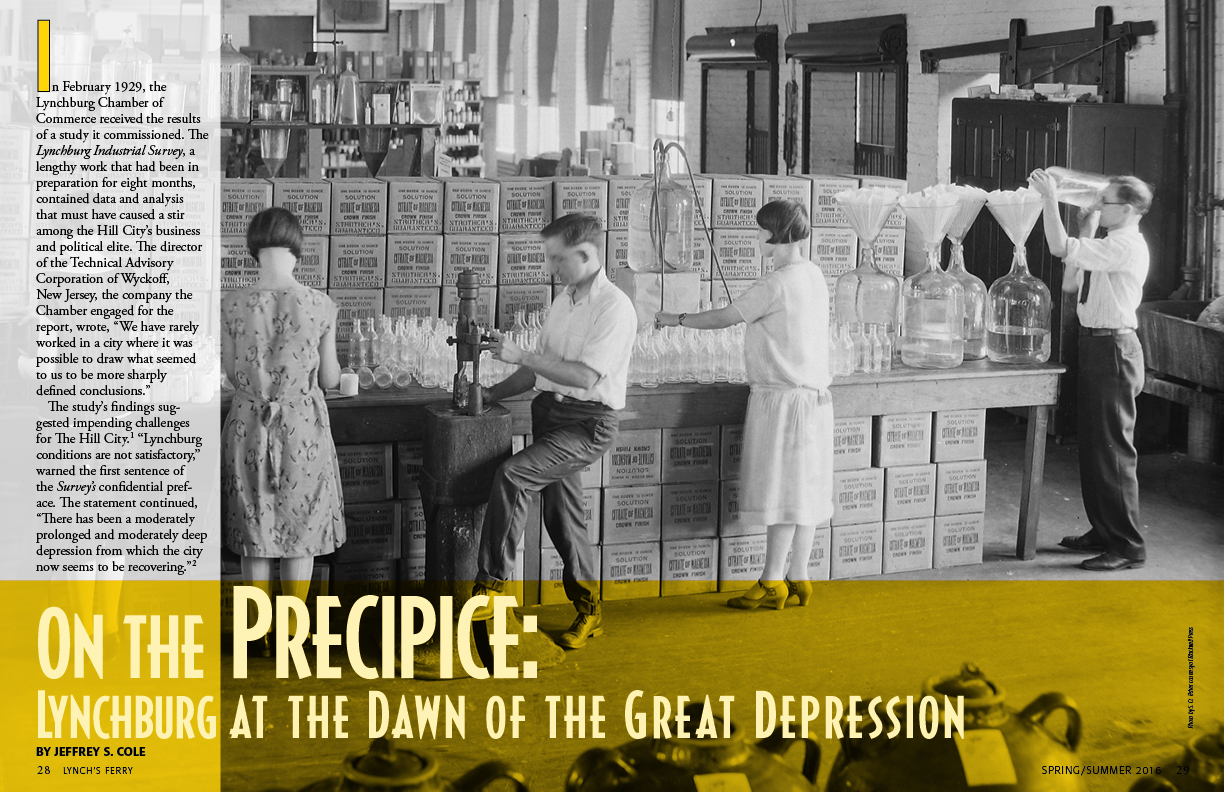On the Precipice: Lynchburg at the Dawn of the Great Depression

In February 1929, the Lynchburg Chamber of Commerce received the results of a study it commissioned. The Lynchburg Industrial Survey, a lengthy work that had been in preparation for eight months, contained data and analysis that must have caused a stir among the Hill City’s business and political elite. The director of the Technical Advisory Corporation of Wyckoff, New Jersey, the company the Chamber engaged for the report, wrote, “We have rarely worked in a city where it was possible to draw what seemed to us to be more sharply defined conclusions.”
The study’s findings suggested impending challenges for The Hill City. “Lynchburg conditions are not satisfactory,” warned the first sentence of the Survey’s confidential preface. The statement continued, “There has been a moderately prolonged and moderately deep depression from which the city now seems to be recovering.”
By autumn, although the Depression had not hit Lynchburg’s economy full-force, citizens who had investments in the stock market experienced the fiscal pain that accompanied the closing days of October 1929. The Lynchburg Clothing Company, a wholesale haberdashery house, fell on challenging times. The president’s wife wrote to their daughter (who was away at a $1,500-a-year finishing school in New York) the day before Black Tuesday about the trials she witnessed:
Not only did R. G. Bailey lose some of his personal fortune in the stock market, but his company’s sales languished. Conditions worsened during the early months of 1930. “They can’t seem to sell anything anymore somehow,” Lurline’s mother wrote. “It’s not only [your father’s] business but everyone I know.” Four months after the crash, Mrs. Bailey lamented:Lurline you no doubt already know the terrible conditions of the stock market—or at least have heard it discussed. I reckon Lynchburg is nearly crazy tonight. Everything has gone all to pieces. Of course we lost several thousand dollars and Daddy is so worried about things he just can’t do anything else but worry.
I haven’t bought a single new thing for Spring yet. Would like to have a new coat but don’t know what kind to get or whether I can have any at all for when I tell you business is so terrible I mean worse than Daddy has ever had since he has been in business for himself. In fact they have had no business at all to speak of since Nov. sometime.
^ Top
Previous page: Robert C. Wesley, M.D. and the Racial Integration of Medical Care in Lynchburg
Next page: Fall 2016
Site Map




